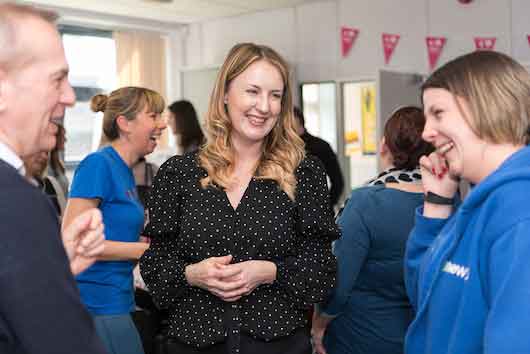Action must match enthusiasm if wellbeing of future generations ambition to be realised in wales
Auditor General publishes first year review of how public bodies in Wales are implementing new legislation
Public bodies in Wales are taking steps to change how they work in response to the new Well-being of Future Generations (Wales) Act 2015 [opens in new window] and many are talking about it with enthusiasm and optimism. But, they need to consider how they will apply the Act more systematically if they are going to drive a different way of working over the longer term. The Auditor General for Wales is calling for public bodies to match their enthusiasm with continuing action, if Wales is to make the most of the opportunity the Act affords.
His report, provides an overview of how public bodies in Wales have responded to the Well-being of Future Generations Act. The report – Reflecting on year one: How have public bodies responded to the Well-being of Future Generations (Wales) Act 2015? – is designed to support organisations during this transition phase and recognises that all public bodies are on a learning path to deliver legislation that is bold, ambitious and aims to drive a long term cultural change in public services and better outcomes for people. That’s why the report highlights some case study examples of emerging practice to help others learn and improve.
The report found that public bodies are able to give examples of how they have used the Act to make the changes needed for them to effectively apply the sustainable development principle. Public bodies now need to set out how they will continue developing their approach to the Act so that they can deliver on the ambition and maximise the opportunities it affords.
To apply the sustainable development principle, under the Act, public bodies must take account of the ‘five ways of working’:
- Looking to the long term so that they do not compromise the ability of future generations to meet their own needs;
- Taking an integrated approach, when planning and delivering public services – so that they look at all the well-being goals in deciding on their well-being objectives;
- Involving a diversity of the population in the decisions that affect them;
- Working with others in a collaborative way to find shared, sustainable solutions; and
- Understanding the root causes of issues to prevent them from occurring or getting worse.
The Auditor General for Wales is required to examine public bodies to see how they have acted in accordance with the sustainable development principle when setting their well-being objectives; and taking steps to meet them. He must provide a report on his examinations to the National Assembly for Wales at least a year before each Assembly election. The first such report must be published by 2020, before the 2021 Assembly election.
The report is a preliminary piece of work, before starting his formal examinations. He will also be hosting a national conference on 17 May, at Cardiff City Stadium, to communicate his findings in more detail with public bodies and explore with them the next steps for the future.
The Future Generations Commissioner in Wales has also published a report, in parallel, ‘Well-being in Wales: The journey so far’ [opens in new window] looks at the well-being objectives that public bodies have set and provides advice on how they can best demonstrate they are taking effective steps to meet them.
Auditor General, Huw Vaughan-Thomas said:
“This is just the start of the journey for public services in Wales. One year on, and many organisations have started to make important strides in implementing the legislation to improve well-being in Wales. While this is a positive start, public bodies will need to continue their efforts if they are going to use the Act to make bold changes to what they do and the way they do it.”


